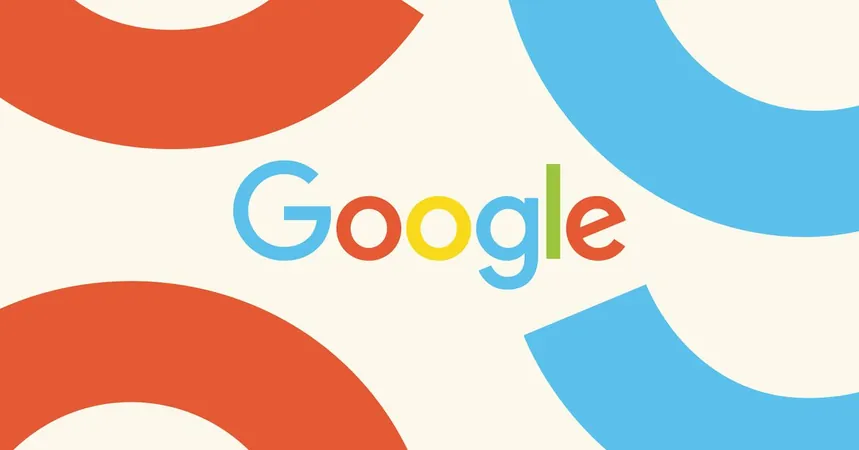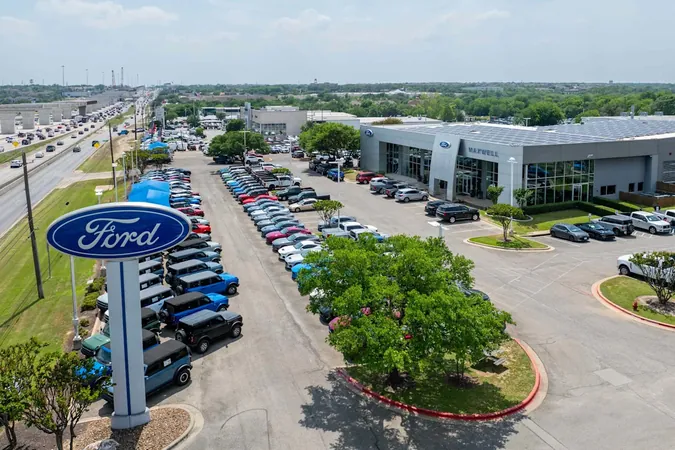
Google Unveils Revolutionary Technology to Differentiate Real Photos from AI-Generated Counterparts!
2024-09-17
Author: Jessica Wong
Introduction
In a groundbreaking move set to reshape online image integrity, Google has announced its plans to implement advanced technology capable of determining whether a photo originates from a traditional camera, has been manipulated with software like Photoshop, or is the product of sophisticated generative AI models. This exciting update will debut in the coming months, enhancing Google Search with an updated "about this image" feature that will inform users about the authenticity of images.
Collaboration with C2PA
This initiative comes as part of Google's collaboration with the Coalition for Content Provenance and Authenticity (C2PA), an influential consortium dedicated to tackling the challenges posed by AI-generated imagery. The C2PA has developed a vital technical standard designed to trace the origin of images, providing a valuable digital record that spans both hardware and software. This means that the pictures you see online could soon have verifiable origins, making it easier to discern fact from fiction.
Major Tech Support
Major tech players, including Amazon, Microsoft, Adobe, Arm, OpenAI, Intel, and Truepic, have joined Google in supporting C2PA authentication, although widespread adoption has been slow. Google's integration into search results marks a significant, real-world test of this promising standard.
New Technical Standard
Google is also at the forefront of developing the C2PA's latest technical standard (version 2.1), in conjunction with a forthcoming C2PA trust list that will allow platforms like Google Search to validate the authenticity of content. Laurie Richardson, Google’s Vice President of Trust and Safety, elaborates, “If the data indicates that an image was captured by a specific camera model, the trust list will help ensure that this information is accurate.”
Advertising and YouTube Integration
Beyond enhancing search functionalities, Google aims to incorporate C2PA metadata into its advertising systems as well. "Our objective is to ramp this up over time and utilize C2PA signals to inform the enforcement of our key policies,” Richardson adds. The company is even exploring methods to relay C2PA information to viewers on YouTube for content captured by cameras, expecting to share further updates later this year.
Challenges Ahead
However, while Google leads the charge as one of the first major tech companies to embrace the C2PA authentication standard, challenges remain regarding interoperability across diverse hardware and software. Currently, only a handful of camera models from manufacturers like Leica and Sony support the C2PA's open technical standard, which enriches images with metadata including camera settings and geographic location. Promises from Nikon and Canon to adopt the C2PA standard are encouraging, but it remains to be seen whether Apple will bring this innovation to its iPhones and whether Android devices will follow suit.
Application Support
Adobe products such as Photoshop and Lightroom are capable of embedding C2PA data into images, but many other applications, like Affinity Photo and Gimp, are lagging behind. The ability to view this metadata is also inconsistent, as most major online platforms have yet to implement visible labels for this information. Google's proactive approach in search results could serve as an incentive for other companies to adopt similar practices.
Conclusion
Richardson acknowledges the complexity of establishing content provenance, remarking, "This remains a multifaceted challenge with countless considerations depending on the product or service." She emphasizes the necessity for industry collaboration: "While no single solution fits all online content, working together is crucial for crafting sustainable and interoperable future solutions."
Looking Ahead
Stay tuned as Google sets the stage for a new era of digital transparency—this could change the way we trust images on the internet forever!


 Brasil (PT)
Brasil (PT)
 Canada (EN)
Canada (EN)
 Chile (ES)
Chile (ES)
 Česko (CS)
Česko (CS)
 대한민국 (KO)
대한민국 (KO)
 España (ES)
España (ES)
 France (FR)
France (FR)
 Hong Kong (EN)
Hong Kong (EN)
 Italia (IT)
Italia (IT)
 日本 (JA)
日本 (JA)
 Magyarország (HU)
Magyarország (HU)
 Norge (NO)
Norge (NO)
 Polska (PL)
Polska (PL)
 Schweiz (DE)
Schweiz (DE)
 Singapore (EN)
Singapore (EN)
 Sverige (SV)
Sverige (SV)
 Suomi (FI)
Suomi (FI)
 Türkiye (TR)
Türkiye (TR)
 الإمارات العربية المتحدة (AR)
الإمارات العربية المتحدة (AR)